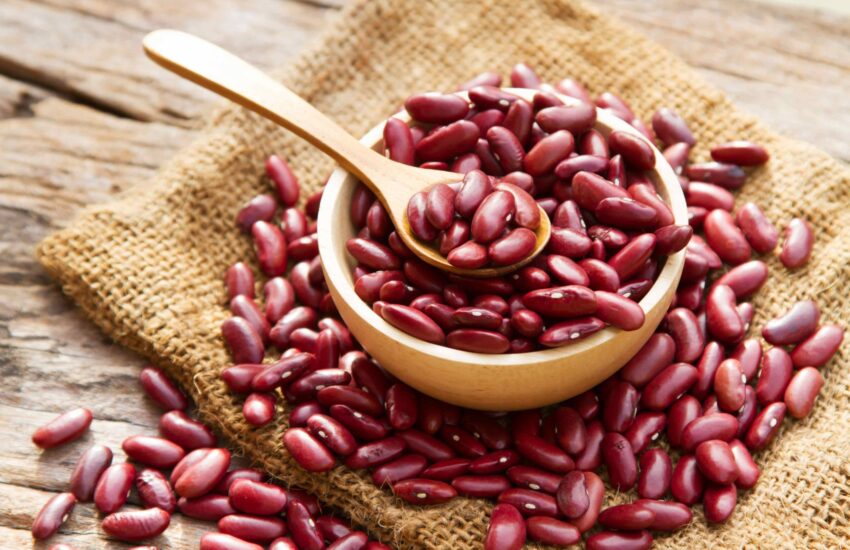Introduction
Minerals, vitamins, and nutritious proteins can all be found in kidney beans. Consuming them can aid in blood sugar regulation, digestive health, and weight management. However, you should always fully cook them before consuming them. The typical beans (Phaseolus vulgaris), a type of legume indigenous to Mexico and Central America, is the kind known as kidney bean. Worldwide, the typical bean is a significant food crop and a key source of protein.
Kidney beans are typically consumed cooked, and they are used in many different traditional cuisines. Kidney beans can be harmful when raw or cooked incorrectly, but when cooked correctly, they can be a nutritious part of a diet that is well-balanced. They are available in a wide range of hues and patterns, including as mottled, spotted, striped, black, red, and purple.
Nutrition Facts
The nutritional profiles for both light red and dark red kidney beans varies slightly and can change based on whether the beans are dried or canned. Kidney beans in a can that serve as a half-cup contain:
- 105 calories
- 1 gram of fat
- 7 grams of fiber
- 2 grams of sugars
- 7 grams of protein
- 19 gram of carbohydrates
Vitamins And Minerals
A variety of vitamins and minerals, such as the following, are abundant in kidney beans Lead-based paint. Molybdenum, a tiny element mostly present in grains, legumes, and seeds, is abundant in beans.
Folate
Folate, also referred to as folic acid as well as vitamin B9, is thought to be especially crucial during pregnancy.
Iron
Your body uses this vital mineral for a multitude of vital purposes. Because beans contain phytate, iron absorption from them may be limited.
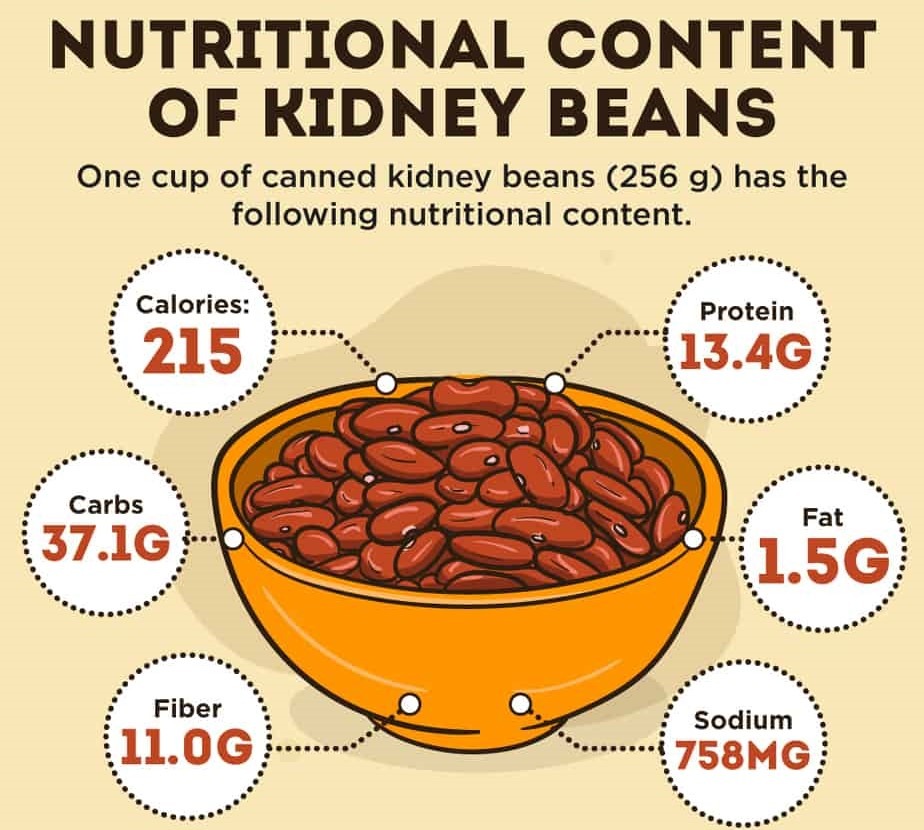
Copper
In the Western diet, this antioxidant essential element is frequently deficient. Seafood, nuts, and organ meats are the finest dietary sources of copper, excluding beans.
Japanese Manga
The majority of foods contain this substance, although legumes, fruits, vegetables, and whole grain products have higher concentrations.
Potassium
The health of the heart may benefit from this necessary nutrient.
Vitamin K1
Vitamin K1, also referred to as phylloquinone, is essential for blood coagulation.
Health Benefits
A balanced diet should include beans because of their great nutritional content, according to nutritionists. Kidney beans are classified as a vegetable as well as a source of protein, just like other beans. Consuming a minimum of half a cup of beans daily can enhance general health. One study found that persons who regularly eat beans ingest more fiber, protein-rich foods, iron, and folate and other essential minerals while consuming fewer calories from fat and saturated fat.
Helps in Heart Health
When beans are consumed in place of meat or other high-cholesterol protein sources, they may benefit health. One strategy to improve heart health and reduce the risk of cardiovascular disease is to reduce cholesterol. With somewhat fewer calories and saturated cholesterol than other bean kinds but equivalent quantities of fiber and protein, kidney beans are among the healthiest forms of beans to utilize as a source of protein.
Prevent Colon Cancer
Studies suggest that individuals who consume common beans, including kidney beans, on a daily basis may be at lower risk of developing colon cancer. Common beans contain non-digestible fiber that regulates colon cell proliferation in a beneficial way, potentially lowering the risk of colon cancer. To understand the precise workings of this process, more research is required.
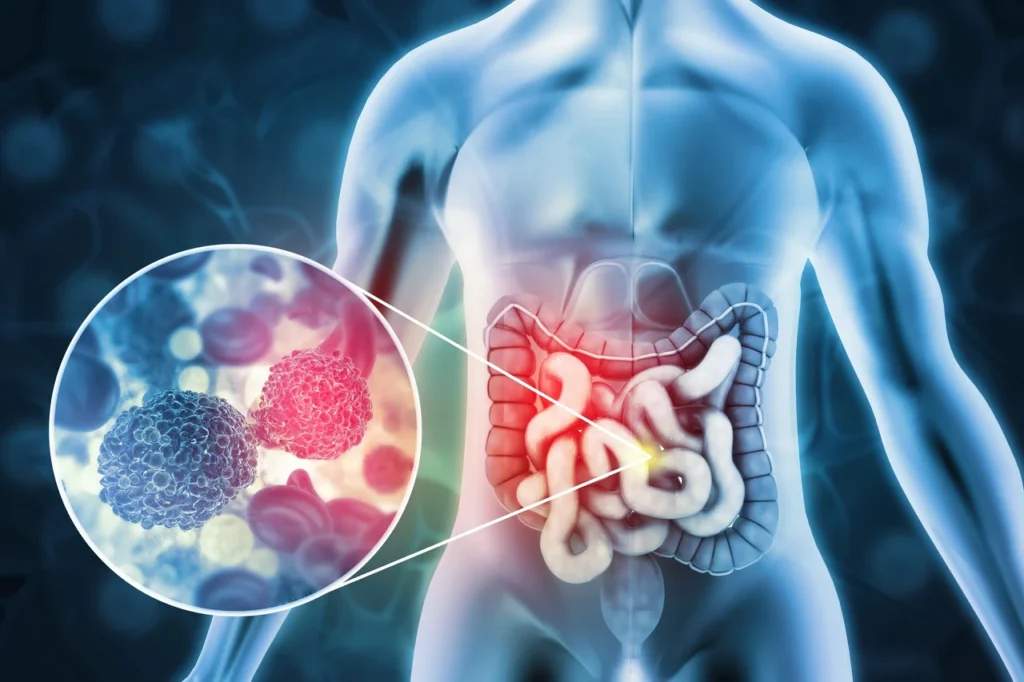
Prevent Fatty Liver
When fat builds up in the liver, it results in fatty liver. It may coexist with other components of the metabolic syndrome, such as obesity, hypertension, excessive cholesterol, and high blood pressure.
Physicians treat fatty liver disease by focusing on weight loss, blood sugar regulation, and lowering blood fat levels, including triglyceride including low-density lipoprotein (LDL), or bad cholesterol in the body. A positive step toward improved liver health is substituting beans for animal proteins with higher fat content.
Rich in Antioxidants
Studies have shown that beans are a good source of polyphenols, a class of antioxidant.
Free radicals are harmful substances that the body generates through metabolism and other activities. Antioxidants counteract these effects.
Numerous diseases can arise from cell damage caused by free radicals. Free radicals are eliminated from the body by antioxidants. Antioxidant-rich foods, including beans, can aid in defending the body against illness in this way.
Control Blood Sugar Levels
High blood sugar can eventually raise your risk of developing a number of chronic conditions, including heart disease. Therefore, it is thought to be good for your health to moderate the spike in blood sugar that occurs after meals. Kidney beans are an excellent way to keep blood sugar levels within acceptable ranges since they are high in fiber, protein, and slow-releasing carbohydrates.
Due to their low GI score, they cause a slow and gradual increase in blood sugar following consumption.
In actuality, beans have a higher blood sugar-regulating effect than the majority of carbs found in diets.
Eating low-glycemic foods, such as beans, may lower your chance of developing type 2 diabetes, according to a number of observational studies.
Consuming low-glycemic foods can help those with type 2 diabetes better control their blood sugar levels.
Including beans in your diet can help balance your blood sugar, safeguard your general health, and lower your chance of numerous chronic diseases even if you don’t have this illness.
Weight Management
Dieting can be difficult for many people, particularly when following a low-carb diet. A diet rich in fiber can provide a different approach to weight loss. Fiber may assist people feel fuller for longer periods of time and prevent overeating since it is filling. According to studies, including beans in a high-fiber diet may be beneficial for those attempting to reduce weight.
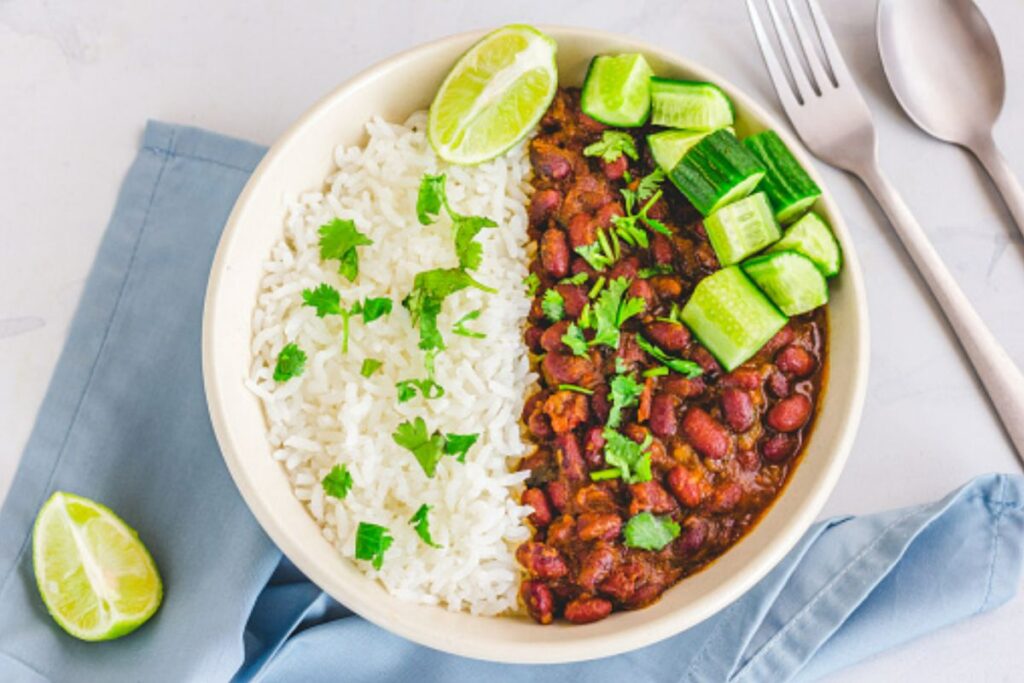
Supports Beneficial Bacteria
Kidney beans’ resistant starch and fiber function as prebiotics, nourishing the good bacteria in the stomach. Enhances the health of the digestive system and may possibly help avoid some malignancies.
Linked With Allergies
As a legume, kidney beans are botanically linked to significant allergens like peanuts and soy, despite the fact that kidney bean allergies are quite uncommon. Kidney beans may particularly irritate anyone with allergies to peanuts, pigeons peas, or chickpeas. An allergy to legumes can cause symptoms such as facial swelling, breathing difficulties, severe asthma, stomach pain, nausea, or vomit.
Consult your healthcare professional for a diagnosis and management guidance if you believe that you or your kid has a sensitivity to kidney beans, or another legume.
Adverse Effects
Sometimes referred to as “antinutrients,” kidney beans contain substances that obstruct the absorption of nutrients. The phrase is deceptive, though, as these compounds are present in all plants and only become noticeable in very large doses. These substances have very little effect at the amounts you probably ingest.
Furthermore, the beans are soaked and cooked to deactivate the chemicals. Therefore, you shouldn’t worry too much about these antinutrients unless you have a medical condition (such iron-deficiency anemia) that may be affected by them.
There are cooking techniques that can be helpful if you’re worried that eating beans would exacerbate your flatulence. Consider soaking the beans ahead of time and removing the water before cooking, or try adding seaweed to the saucepan. Though they haven’t been put to the test in scientific research, these techniques might be worthwhile to try in the kitchen of your home.
How to Prepare Kidney Beans
Many cooks have a fondness for kidney beans. They are available in meal pouches, dry, and canned forms. Their vibrant colors enhance any cuisine and they maintain their form well when cooked. Kidney beans have a harder texture, therefore even people who don’t like many beans due to its mushy texture will frequently eat them.
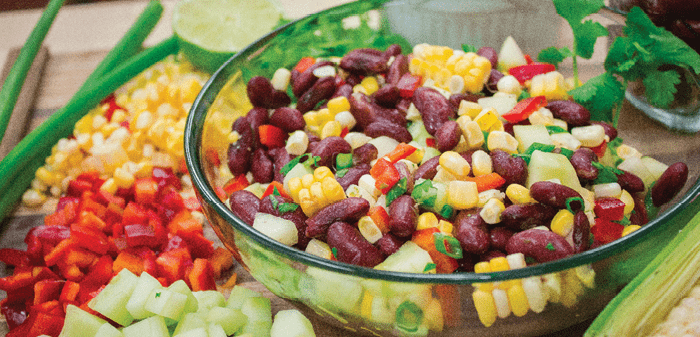
They also provide a nutritious finger food option for children due to their color and ease of handling. Add kidney beans to salads, pastas, appetizers, soups, and even hot and cold foods. Here are a few ideas for incorporating kidney beans into your diet:
- For an added protein boost, add to a salad with pasta
- Taste the kidney bean-based pasta e Faggioli, a traditional Italian soup
- For a Caribbean-inspired side dish, combine kidney beans, rice, and seasonings
- Combine with wax beans and green beans to make a traditional three-bean salad
- To create a vegetarian chili, combine with other beans, ingredients, and chili powder

